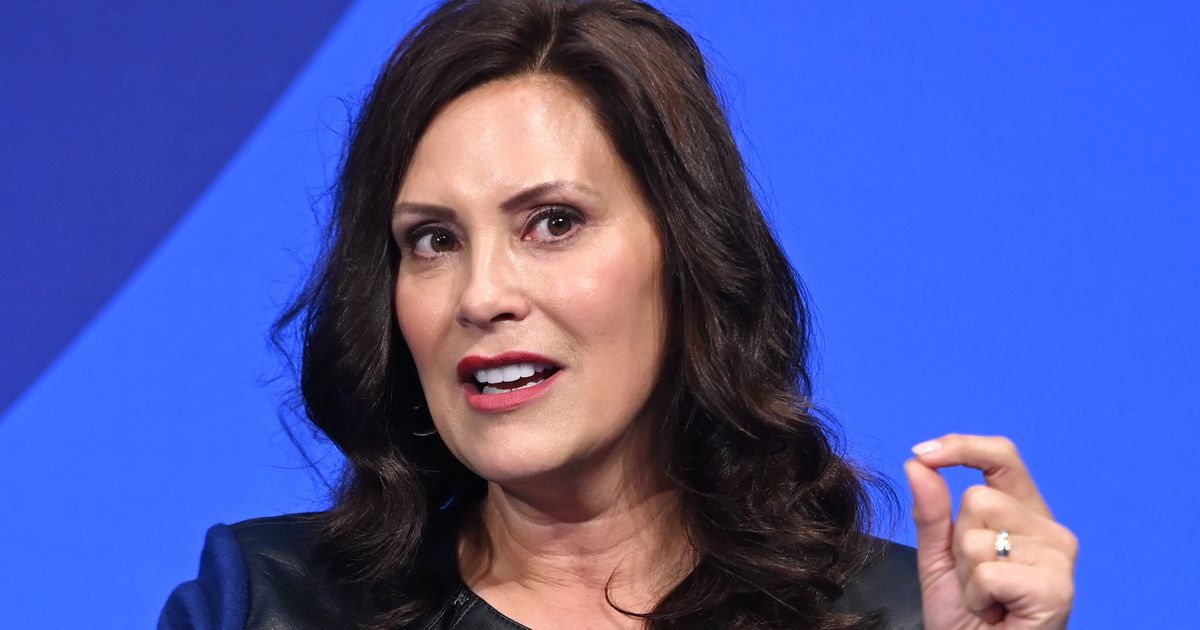Michigan lawmakers approved a slate of bills Wednesday night that are set to transform the energy systems at the heart of America’s heavy industry, putting the major manufacturing state on a course to generate all its electricity from carbon-free sources within just 17 years.
The Great Lake State gets nearly 57% of its power from plants burning coal and natural gas, while nuclear reactors produce another 30% and renewables account for just 13%.
By 2034, at least 60% of the energy mix will instead need to come from sources like solar and wind. By 2040, the rest of the electricity supply will have to come from atomic stations; plants burning “biomass,” such as wood; hydrogen fuel; or fossil fuels equipped with technology to capture carbon dioxide in smokestacks before it enters the atmosphere.
To pull off a fivefold increase in renewables, other bills in the package will tweak zoning rules, grant the state’s utility regulators more power to engage in long-term planning, and give the state control over locating most clean-energy plants capable of pumping out over 100 megawatts of electricity, diminishing local governments’ ability to block wind, solar, battery and transmission projects. Other measures will establish a statewide office to work with labor unions to make sure fossil fuel workers are not left behind in the transition and will mandate that utilities cut back on wasted energy.
“With passage of these game-changing bills, Michigan will become a national leader on clean energy,” Gov. Gretchen Whitmer (D) said in a statement Wednesday night. “People want to know that they can start a family, career, or business in a state that will provide them with strong economic opportunities and fight for their children’s future. Today we are protecting everything we know and love about pure Michigan.”
Whitmer threw her weight behind legislative push nearly four months ago. The bill marks her first major climate policy effort and the latest legislative victory since the second-term governor passed landmark laws to expand abortion and voting rights.
While 22 states plus the District of Columbia and Puerto Rico have adopted targets for 100% clean energy mixes, Michigan would be only the 14th state to enshrine the goal into law.
The only major neighboring state with a similar policy on the books is Minnesota. But Michigan’s laws will offer fewer loopholes for polluters to offset emissions by buying credits in carbon markets and will allow utilities to build new nuclear reactors to meet the clean-electricity goals.
Rather than frame the effort in the save-the-planet talking points usually favored by environmentalists, Whitmer pitched the overhaul of the state’s power system as a pathway to more reliable electricity and better-managed freshwater supplies, burnishing her reputation among some national Democrats as a soothsayer able to reach Midwestern voters drawn in past elections to former President Donald Trump’s populist rhetoric.
“This means all the energy we produce will be from wind, solar, or other common sense sources,” she said in a speech in August. “It means clean air for our kids to breathe and safe water for them to drink. And it means protecting our lakes for generations to come.”
Her statewide speech came just days after storms downed parts of Michigan’s aging grid and left more than 400,000 people without power to run air conditioners or breathing equipment, even as the summer heat climbed past 90 degrees Fahrenheit and wildfires in Canada laced the air with toxic smoke. It was the latest in a series of blackouts that grew in frequency this year, in a state whose utilities a recent independent study pegged as among the nation’s least reliable despite charging some of the highest rates in the Great Lakes region.
As the final versions of the legislation made their way through the state House and Senate in the final week of October, Michigan’s AFL-CIO labor union offered its support, saying the proposals aligned with efforts by autoworkers to secure fair contracts for building electric vehicles.
Some environmental groups criticized measures allowing power plants burning gas collected from landfills and agricultural waste to remain part of the mix. They also accused the legislators of offering too many carve-outs for trash-incinerator facilities that until recently have plagued the air quality in largely Black neighborhoods of Detroit.
Republicans fiercely opposed the legislative package, echoing complaints from the Michigan Chamber of Commerce, a business lobby that has historically played down the need to cut emissions, that the goals set in the bill are “unrealistic” and risk raising the cost of living in a state already struggling with inflation. GOP lawmakers told the Michigan Advance that the speed with which Democrats passed the legislation was “irresponsible.”
But climate policy groups like Evergreen Action said swift passage of the legislation was key to netting up to $1 billion in federal funding for decarbonization infrastructure made available under President Joe Biden’s Inflation Reduction Act.
“Today, Michigan led the industrial heartland and the country towards a clean and prosperous economy,” Courtney Bourgoin, Evergreen’s Midwest senior policy and advocacy manager, said in a statement. “This package will create quality jobs by having the strongest labor standards included in a climate package nationwide — showing that clean energy investment and good-paying jobs go hand-in-hand.”
Good news? In this timeline? In Michigan? I am positively delighted!
Michigan has been on a pretty positive streak lately. Doing me a proud. I hope they maintain this momentum.
Yeah as an Ohioan it sucks to admit how hard they’ve been kicking our asses lately
Hey, you made some steps forward yesterday. You made pot legal and abortion access constitutional. You’re catching up to us slowly.
Yeah we had to fight like hell for it. I swear if y’all ever get somewhere as weird as Columbus we’re gonna need to ask for help catching up.
But seriously I’m really hoping together we can have a Great Lakes regional Renaissance. It seems like our whole area is struggling to improve and is making progress
This is what happens when we have democrats in office.
The republican party is a joke.
Lests go Big Gretch
In the last two years Michigan has gone from being on shaky ground politically to being a stronghold for human rights and rejecting garbage. Now that Ohio is following suit with codifying abortion rights and legalizing recreational cannabis… Great Lakes region is stepping up!
Fingers crossed idiot republicans don’t try to undo the will of the people.
Fuck yeah Michigan! Well done!
Meanwhile, Andrew fucking Fink is pissed that HOAs won’t be allowed to ban rooftop solar panels anymore.
HOAs are a blight upon humanity.
Big Gretch gets it done.
W
I appreciate this is progress and on a greater scale than nearly any other state can boast, but 17 years still seems like an eternity when this year has seen how many of the record highest temperatures for the last several centuries?
It just seems like even the most progressive policies we are able to enact are scheduled as though we have decades to spare to get things on track. We don’t have that kind of time to spare.
I never thought I’d see a rebuilt downtown Detroit in my lifetime but I was proven wrong. I know we can do this, every step forward will bring new people and businesses to this state. The people so against these things are moving or aging out. With everyone in the state boastful of it’s environmental qualities these changes should have unanimous support.
Iowa is already close, what is taking so long?
By 2034, at least 60% of the energy mix will instead need to come from sources like solar and wind.
That’s a very lazy goal.
2040 being 100%. It is a start. Don’t fight the small wins, encourage/clap for them and hopefully they will start to pile up. Make sure they know signing better bills get you votes, maybe we will eventually have good candidates and actual changes
Translation: Your energy bills are going to skyrocket.
The price of building solar and wind is going down everyday. Natural gas will only continue to increase in price as more and more public pressure mounts towards ending our use of fossil fuels. Coal is already not economically viable without government subsidies. Betting on the cost of fossil fuels staying low is a losing strategy.
Why?
Solar prices have basically fallen through the floor in recent years.
The cost of building, fueling and running a new natural gas plant is actually a bit higher than building and running a new utility scale solar or wind plant, ignoring any subsidies. When you add storage to it, they’re fairly comparable. When you take subsidies and tax incentives into account, renewables are cheaper.
A decade ago, sure. Solar was ~5x the price it is now. Today, most new power plants being built are renewable, because it’s cheaper.
https://www.lazard.com/research-insights/2023-levelized-cost-of-energyplus/
deleted by creator









